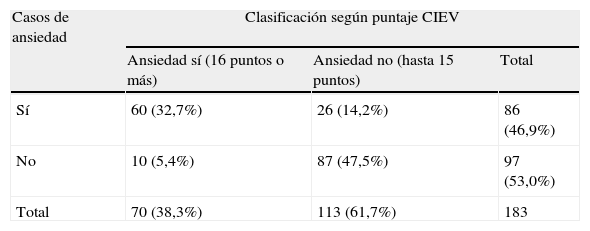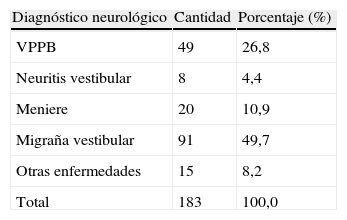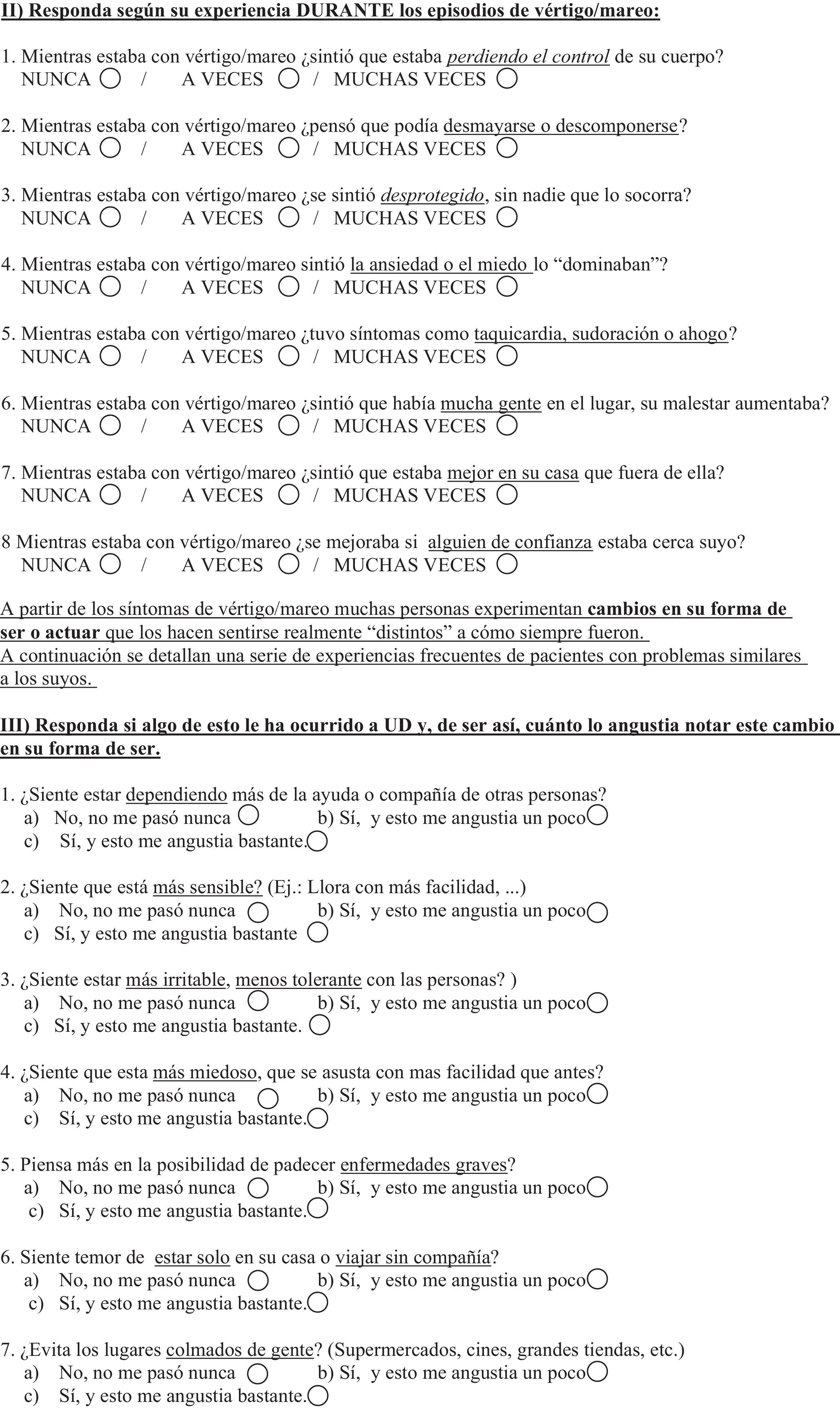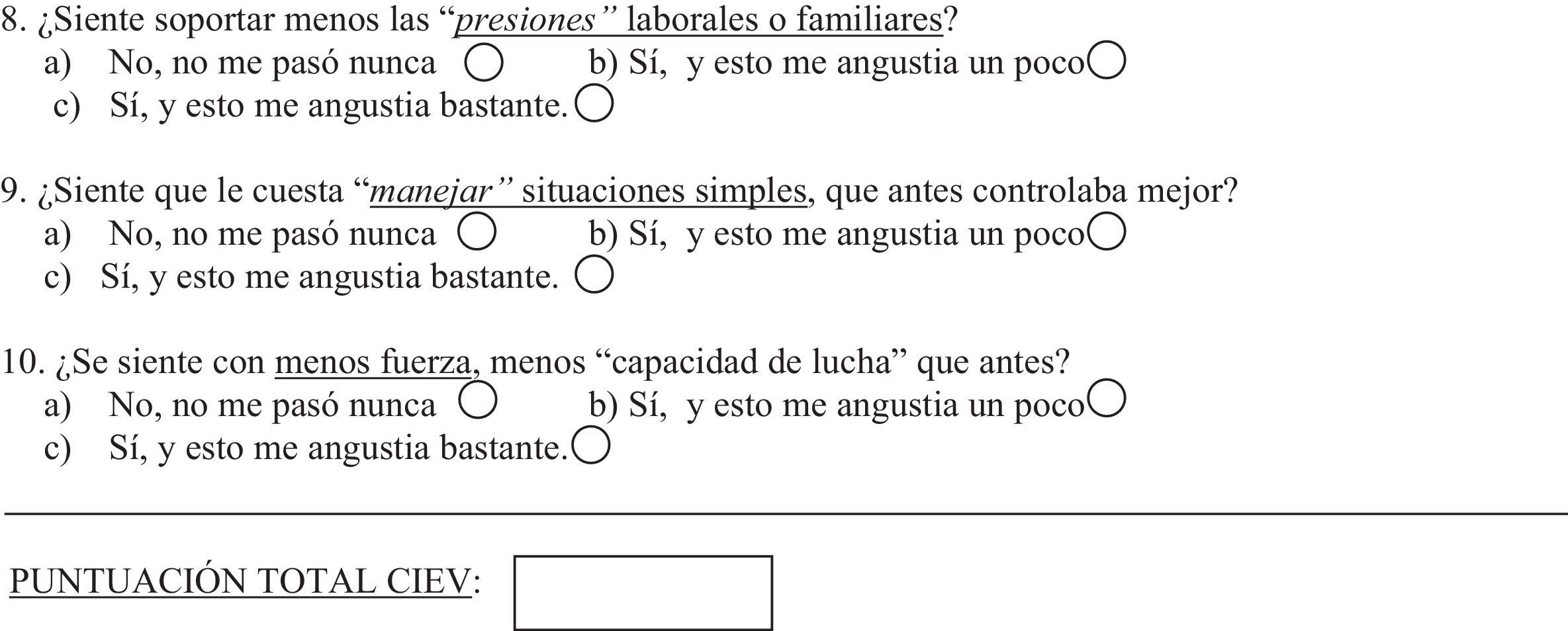Este trabajo profundiza en los estudios sobre la comorbilidad entre ansiedad y enfermedad vestibular. El objetivo principal se orienta a comprender las razones por las cuales el paciente puede no sentirse «plenamente recuperado» pese al alta médica de los profesionales tratantes. Se estudiaron las características de personalidad que pueden favorecer la continuidad de la afección.
MétodosEl cuestionario de impacto emocional del vértigo permite determinar si el paciente posee un estilo psicológico con tendencia a desarrollar niveles patológicos de ansiedad, característica subjetiva determinante de las dificultades frente al tratamiento médico. Paralelamente se aplicó a 198 pacientes de Argentina y México. Cada enfermedad se trató mediante los procedimientos médicos habituales. El estudio se centró en determinar el grado de correlación entre el «sentirse o no plenamente rehabilitado al concluir el tratamiento» y las puntuaciones del CIEV que respondieron previamente al abordaje.
ResultadosEn más de un 80% de los casos se logró correlacionar las puntuaciones altas (>15 puntos) del cuestionario y la dificultad presentada por el paciente para una plena recuperación de su enfermedad posterior al tratamiento médico.
ConclusionesLas evaluaciones objetivas (duración e intensidad de los síntomas, tiempo de inicio de la enfermedad, etc.) no permiten predecir con exactitud las posibles dificultades durante el tratamiento del vértigo. Por tanto, consideramos determinante la evaluación subjetiva que el paciente realiza de cómo su enfermedad vestibular lo ha afectado, ya que esa información clave permite predecir el curso de la enfermedad y las probabilidades de una plena recuperación.
This work presents deeper studies of comorbidity between anxiety and vestibular pathology. The aim of this work was to comprehend the reasons why patients do not feel «fully recovered» even though the treating professionals discharge them. We studied the features of personality that can favour the continuity of the condition.
MethodsThe questionnaire for measuring the emotional impact of vertigo makes it possible to determine if the patient has a psychological style with a tendency to develop pathological anxiety levels. Anxiety is a subjective characteristic determinant in difficulties with medical treatment. The questionnaire was applied to 198 patients in Argentina and Mexico in parallel. Each pathology was treated by standard medical procedures. The study focused on determining the correlation between «feeling fully recovered or not at the end of treatment» and the questionnaire scores obtained before the approach.
ResultsIn more than 80% of cases, high scores (>15 points) on the questionnaire were correlated with the difficulty presented by the patients for full recovery from the pathology after medical treatment.
ConclusionsThe objective assessments (duration and intensity of symptoms, time of onset of the disease, etc.) do not exactly predict possible difficulties during treatment of vertigo. Consequently, we consider the patient's subjective assessment of how the vestibular pathology affects him or her to be determinant. That key information allows us to predict the course of the illness and the probability of a full recovery.
Artículo
Comprando el artículo el PDF del mismo podrá ser descargado
Precio 19,34 €
Comprar ahora












